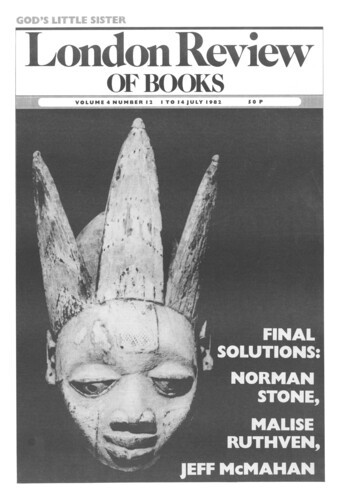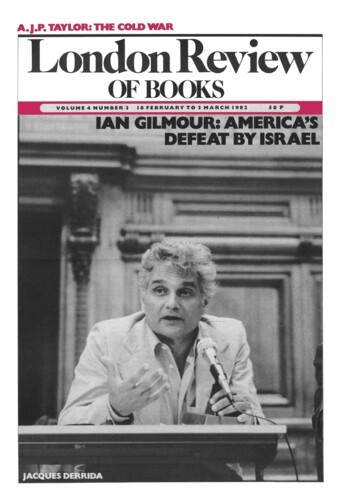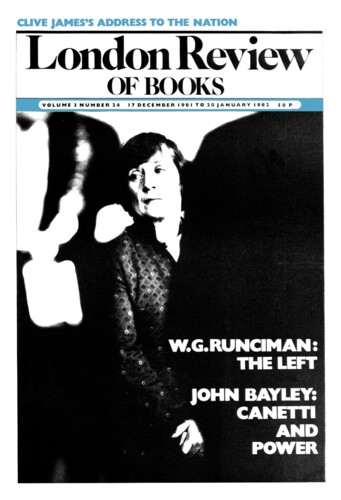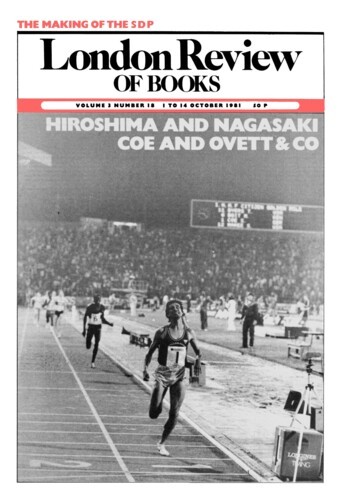Fundamentalisms
Malise Ruthven, 1 July 1982
No one contemplating the events of the past few weeks can doubt that the complex and intractable conflicts of the Middle East pose a far greater threat to world peace than the ugly fight in the South Atlantic ever did. Despite the windy rhetoric about principles, the Falklands conflict has been a comparatively simple one about sovereignty over disputed territory, involving national prestige – and therefore the political survival of two governments (or rather juntas, one has been tempted to add, as the Westminster variety increasingly resembled its Argentine counterpart in shrillness and implacability). The Middle East is a sweltering miasma of political conflicts where sovereignty is only one among a number of issues. Disputed territory in the Shatt el Arab, official cause of the Iran-Iraq war, or on the West Bank of the Jordan, is only an element in much deeper conflicts involving allegiance, ideology and group identity, exacerbated by the existence of oil and strategic assets which keep the super-powers waiting anxiously on the side-lines, hesitating to intervene directly, yet too opportunistic, or unsure of their interests, to blow the final whistle.




